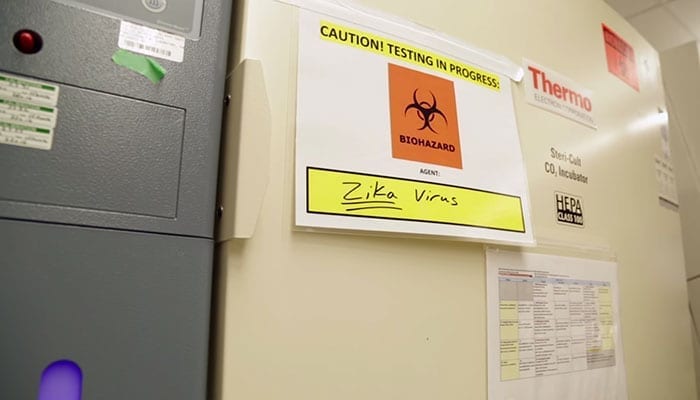When the Zika virus emerged as a global threat, the Walter Reed Army Institute of Research (WRAIR) drew on its deep expertise in protecting soldiers against malaria, Ebola and other flaviviruses, to develop the ZPIV vaccine in just six months.
The vaccine is being tested at WRAIR’s Clinical Trial Center in Silver Spring, Maryland.
“As long as we have had a nation and as long as we have had an army, infectious diseases have threatened the U.S. force both at home and abroad. Zika is a flavivirus,” commented COL Stephen Thomas, Zika Program Co-Lead at WRAIR. “Walter Reed is the one who proved that yellow fever was transmitted by a mosquito so researching flaviviruses is in our DNA we’ve been doing it over a century which has put us in a good position to be able to try and help the US government tackle the Zika issue.”
COL Nelson Michael, Zika Program Co-Lead and Directory of HIV Research at WRAIR noted the importance of sentinel labs overseas. “One of the great strengths of WRAIR is its overseas laboratories. Global outreach is powerful asset to Army medicine. We’re able to work on diseases where they actually occur and where those diseases actually could influence our warfighters in terms of deployments, said Michael. “One of the activities that goes on in these overseas locations is something we call biosurveillance and so it is the WRAIR’s job to identify and anticipate what those threats are going to be and then to develop countermeasures to either eliminate or mitigate those threats.”
WRAIR’s inactivated flavivirus vaccine platform was the same technology the institute used to create its Japanese encephalitis vaccine, licensed in 2009. The National Institute of Allergy and Infectious Diseases, or NIAID, part of the National Institutes of Health, helped identify the viral strain used in the ZPIV vaccine, supported the preclinical safety testing and clinical trials.
WRAIR, NIAID and the Department of Health and Human Services’ Biomedical Advanced Research and Development Authority, or BARDA, have established a joint research collaboration agreement to support the vaccine’s development.
The Pilot Bioproduction Facility at WRAIR manufactured the ZPIV vaccine being used in Phase 1 clinical studies, and the Army recently signed a cooperative research and development agreement to transfer the ZPIV technology to Sanofi Pasteur to explore larger scale manufacturing and advanced development. BARDA recently awarded a six-year contract to Sanofi Pasteur to further develop this vaccine to licensure.
Sources: Health.mil, WRAIR, DoD



